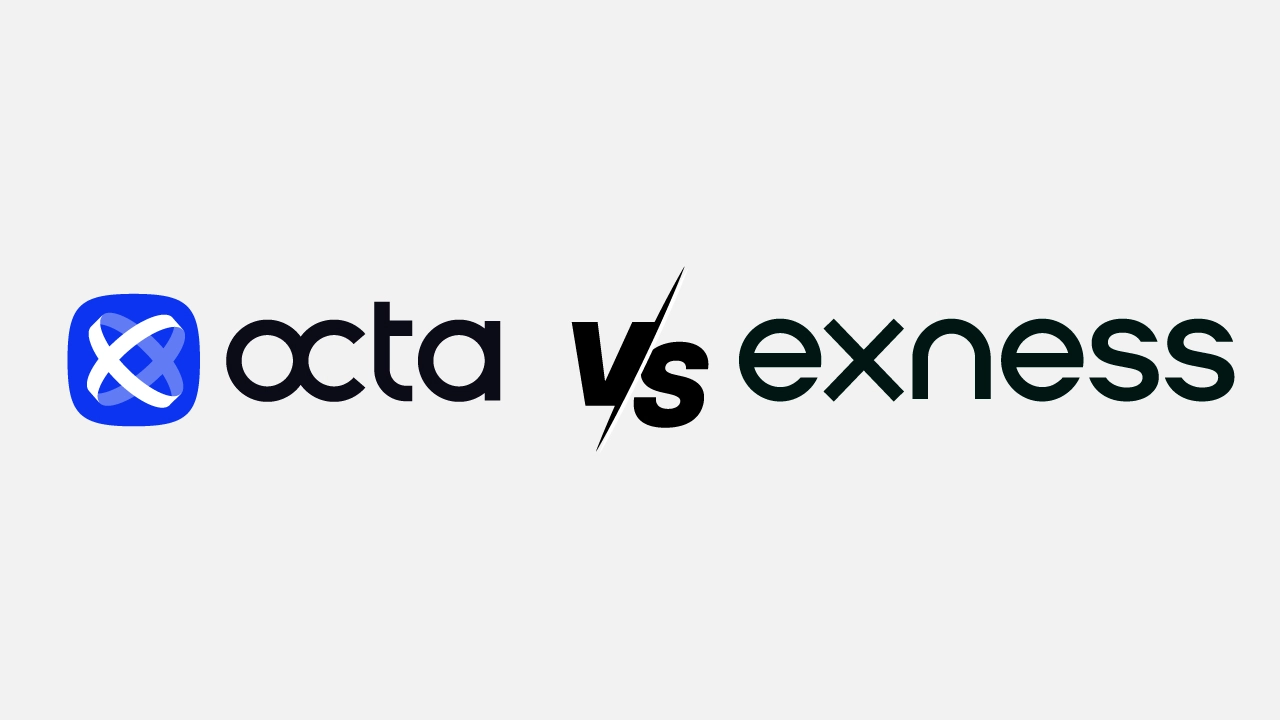Compare Exness and Octa for Forex and CFD trading. Discover key features, fees, platforms, and trading options to find the best fit for your strategy.
When selecting a Forex and CFD broker, it’s important to evaluate the key features, fees, platform offerings, and overall user experience. In this detailed review, we compare Exness and Octa (formerly known as OctaFX), two prominent brokers in the industry. This comparison will help you decide which platform aligns best with your trading needs.
Overview of Exness and Octa
Exness, established in 2008, has grown to become a global player, especially renowned for its vast Forex offerings, while Octa, founded in 2011, is recognized for its low-cost trading environment and innovative copy trading service.
Both brokers offer MetaTrader 4 (MT4) and MetaTrader 5 (MT5) platforms, along with proprietary tools to suit different trading preferences. Let’s delve into the features, costs, and other critical aspects of these two brokers.
Features and Platforms
Exness:
- Provides both MT4 and MT5, as well as a proprietary trading platform.
- VPS hosting for automated trading, which benefits traders using Expert Advisors (EAs).
- Offers 107 currency pairs, one of the best selections in the industry, but has fewer instruments in other categories like cryptocurrencies and commodities.
Octa:
- Also supports MT4/MT5 and provides OctaTrader, a proprietary platform geared towards manual traders.
- Popular for its copy trading platform, which allows novice traders to follow and replicate the trades of more experienced ones.
- More limited in asset variety, with 52 currency pairs and a higher focus on cryptocurrency CFDs.
Both brokers cater to a wide range of traders but differ in how they target their user base. Exness stands out for its expansive Forex market access, while Octa specializes in copy trading and lower fees.
Trading Costs and Fees
Exness:
- EUR/USD average spread is 0.6 pips, making it competitive for traders with larger portfolios. The broker also offers raw spreads from 0.0 pips but requires higher deposits.
- Exness charges $7 per lot for its commission-based accounts.
- No inactivity fee and instant withdrawals for certain methods.
Octa:
- Maintains a commission-free model with spreads starting at 0.6 pips. The average spread for EUR/USD is 0.9 pips, which is slightly higher than Exness but still reasonable.
- No swap fees for overnight positions, making it highly attractive for traders following Islamic principles or those who hold trades for extended periods.
Octa’s pricing model is particularly beneficial for traders looking for cost-efficient long-term trading, while Exness appeals more to high-volume traders looking for ultra-tight spreads and broader market access.
Regulation and Security
Exness:
- Regulated by top-tier authorities, including CySEC (Cyprus) and the FCA (UK), although it has shifted its focus to business-to-business clients in some jurisdictions.
- Also holds licenses with the FSA (Seychelles) and FSCA (South Africa), ensuring broad regulatory oversight.
Octa:
- Regulated by CySEC, the FSCA, and the MWALI International Services Authority.
- Offers negative balance protection and segregated client funds, ensuring a secure trading environment.
Both brokers are well-regulated, though Exness has a slight edge due to its multi-tier regulatory licenses.
Account Types and Minimum Deposits
Exness:
- Offers a wide range of accounts with a minimum deposit starting at $10, although some advanced accounts require larger deposits for lower spreads.
- Leverage can go as high as 1:2000, depending on the asset and region.
Octa:
- Minimum deposit is $25 for its standard account, with up to 1:1000 leverage available for Forex pairs.
- Offers a Status Program that provides perks like reduced fees for active traders.
Both brokers are accessible to traders with smaller starting capital, though Exness offers a broader range of account types.
Available Markets
Exness:
- 107 currency pairs.
- 7 cryptocurrency pairs, 12 commodities, and 81 equity CFDs.
Octa:
- 52 currency pairs.
- 34 cryptocurrencies, 5 commodities, and 10 index CFDs.
Exness offers a more comprehensive range of Forex instruments, while Octa excels in the cryptocurrency space.
Deposit and Withdrawal Methods
Exness:
- Known for its instant withdrawals with online payment processors, which are processed in a matter of seconds.
- Bank wire transfers can take up to 10 days, but there are no withdrawal fees.
Octa:
- 19-minute average withdrawal processing time, with support for multiple payment processors, including cryptocurrencies.
- No fees for most withdrawal methods.
Both brokers offer fast and fee-free withdrawals, though Exness stands out with its instant processing for certain methods.
Exness vs. Octa: Which Broker Should You Choose?
Choosing between Exness and Octa ultimately depends on your trading priorities:
- Choose Exness if you value a wide selection of Forex pairs, tight spreads for high-volume traders, and instant withdrawals.
- Choose Octa if you are looking for cost-efficient, commission-free trading with access to a solid copy trading platform and cryptocurrency CFDs.
Both brokers are strong contenders in their own right and cater to different trading strategies and trader profiles.
FAQs
How long do withdrawals take on Exness and Octa?
Exness offers instant withdrawals for some online payment processors, while bank transfers may take up to 10 days. Octa processes most withdrawals within 19 minutes for online payments.
Does Octa offer commission-free trading?
Yes, Octa offers commission-free trading with spreads starting from 0.6 pips on major currency pairs.
Is Exness or Octa better for beginners?
Both brokers cater to beginners, but Octa offers better educational content and a copy trading platform that is ideal for less experienced traders.
Published by:
![]() Daniel Carter
Daniel Carter
